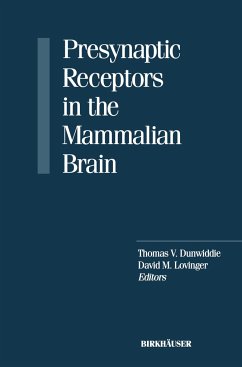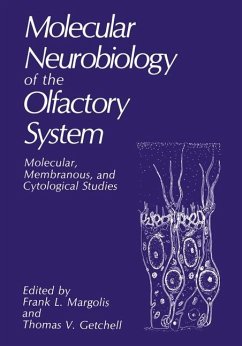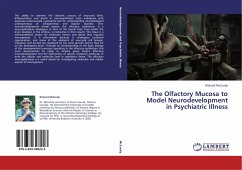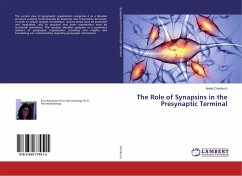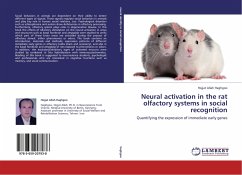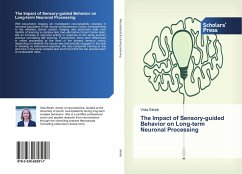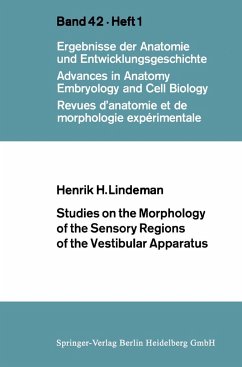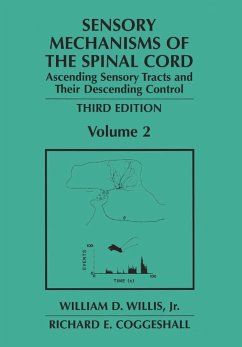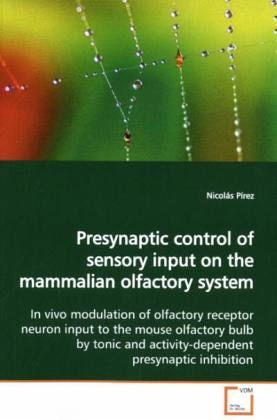
Presynaptic control of sensory input on the mammalian olfactory system
In vivo modulation of olfactory receptor neuron input to the mouse olfactory bulb by tonic and activity-dependent presynaptic inhibition
Versandkostenfrei!
Versandfertig in 6-10 Tagen
39,99 €
inkl. MwSt.

PAYBACK Punkte
20 °P sammeln!
Presynaptic inhibition modulates signal transmissionin the olfactory pathway by several mechanisms, amajor one being mediated by GABAB receptors, whichsuppress presynaptic calcium influx and subsequenttransmitter release from the receptor neuronterminal. Presynaptic inhibition could function tolimit the strength of olfactory input to the centralnervous system, as well as provide a substrate forcentrifugal control of odorant representations earlyin the olfactory system. Odorant and electricalstimulation combined with in vivo pharmacology wereused to characterize the functional determinants ofGA...
Presynaptic inhibition modulates signal transmission
in the olfactory pathway by several mechanisms, a
major one being mediated by GABAB receptors, which
suppress presynaptic calcium influx and subsequent
transmitter release from the receptor neuron
terminal. Presynaptic inhibition could function to
limit the strength of olfactory input to the central
nervous system, as well as provide a substrate for
centrifugal control of odorant representations early
in the olfactory system. Odorant and electrical
stimulation combined with in vivo pharmacology were
used to characterize the functional determinants of
GABAB-mediated presynaptic. The results of this work
showed that tonic inhibition is a major determinant
of receptor input strength; and were dependent on
glutamatergic transmission from second-order neurons
in the glomerular layer. When the behavioral state of
the awake animal was altered, odorant-evoked
responses were affected. Taken together these results
suggest that tonic inhibition via top-down,
centrifugal control plays a major role in modulating
the magnitude of sensory input to the brain as a
function of behavioral state.
in the olfactory pathway by several mechanisms, a
major one being mediated by GABAB receptors, which
suppress presynaptic calcium influx and subsequent
transmitter release from the receptor neuron
terminal. Presynaptic inhibition could function to
limit the strength of olfactory input to the central
nervous system, as well as provide a substrate for
centrifugal control of odorant representations early
in the olfactory system. Odorant and electrical
stimulation combined with in vivo pharmacology were
used to characterize the functional determinants of
GABAB-mediated presynaptic. The results of this work
showed that tonic inhibition is a major determinant
of receptor input strength; and were dependent on
glutamatergic transmission from second-order neurons
in the glomerular layer. When the behavioral state of
the awake animal was altered, odorant-evoked
responses were affected. Taken together these results
suggest that tonic inhibition via top-down,
centrifugal control plays a major role in modulating
the magnitude of sensory input to the brain as a
function of behavioral state.



